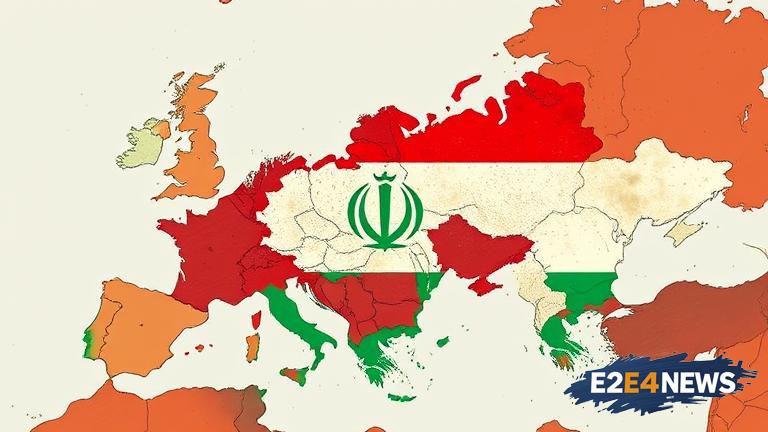The recent decision by European nations to trigger snapback sanctions against Iran has sent shockwaves throughout the international community. This move is a response to Iran’s continued violation of the Joint Comprehensive Plan of Action (JCPOA), also known as the Iran nuclear deal. The JCPOA was signed in 2015 by Iran, the United States, the United Kingdom, France, Germany, China, and Russia, with the aim of limiting Iran’s nuclear program in exchange for relief from economic sanctions. However, in 2018, the United States withdrew from the deal and reimposed sanctions on Iran, leading to a significant escalation of tensions between the two countries. Despite efforts by European nations to salvage the deal, Iran has continued to breach its terms, leading to the current snapback sanctions. The snapback mechanism is a provision in the JCPOA that allows for the automatic reimposition of sanctions if Iran is found to be in non-compliance with the deal. The European nations’ decision to trigger this mechanism is a significant development, as it marks a shift in their approach to dealing with Iran’s nuclear program. The sanctions are expected to have a significant impact on Iran’s economy, which is already struggling under the weight of existing sanctions. The move is also likely to further strain relations between Iran and the European nations, as well as between Iran and the United States. The Iranian government has responded to the sanctions by vowing to continue its nuclear program, despite the international pressure. The situation is complex and multifaceted, with various countries and organizations having different interests and motivations. The United Nations Security Council has been involved in the discussions, with some members calling for a return to the negotiating table. The European Union has also been working to find a diplomatic solution, but the snapback sanctions are a clear indication that the situation is becoming increasingly dire. The implications of the snapback sanctions are far-reaching, with potential consequences for global energy markets, regional security, and the future of non-proliferation efforts. The move is also likely to have significant humanitarian implications, as the sanctions are expected to exacerbate the already dire economic situation in Iran. The Iranian people are likely to bear the brunt of the sanctions, which could lead to further instability and unrest in the region. The international community is watching the situation closely, with many calling for a peaceful resolution to the crisis. The United States has welcomed the European nations’ decision to trigger the snapback sanctions, seeing it as a significant step towards holding Iran accountable for its actions. However, other countries, such as China and Russia, have expressed opposition to the sanctions, arguing that they are counterproductive and will only serve to escalate the situation. The snapback sanctions are a clear indication that the international community is no longer willing to tolerate Iran’s violations of the JCPOA. The move is a significant development in the ongoing saga of the Iran nuclear deal, and its implications will be felt for years to come. The situation is complex and multifaceted, with various countries and organizations having different interests and motivations. The European nations’ decision to trigger the snapback sanctions is a significant shift in their approach to dealing with Iran’s nuclear program, and it remains to be seen how the situation will unfold in the coming months and years. The international community is holding its breath as it waits to see how Iran will respond to the sanctions, and what the implications will be for global relations and regional security. The snapback sanctions are a clear indication that the international community is no longer willing to tolerate Iran’s violations of the JCPOA, and it remains to be seen how the situation will unfold in the coming months and years.
